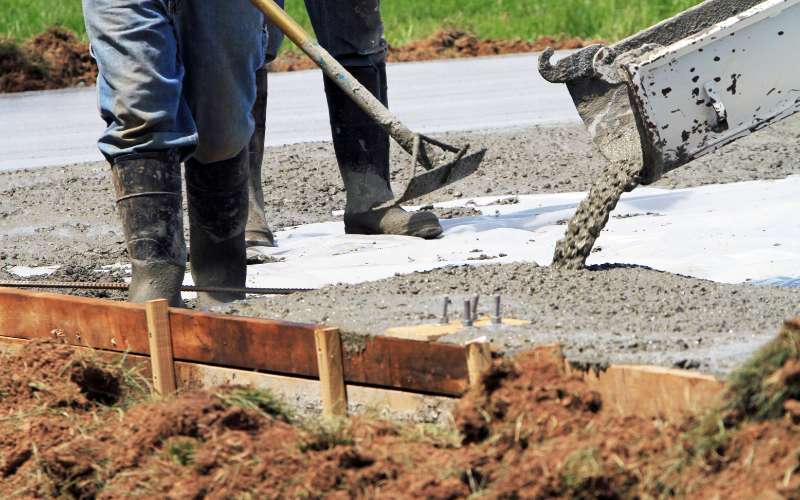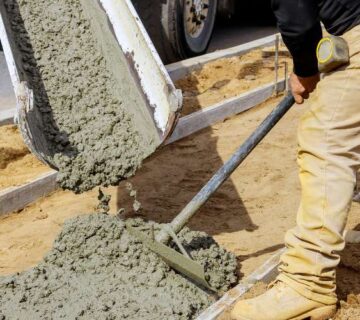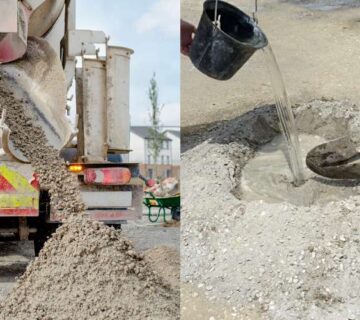When planning a construction project, knowing how to choose the right concrete thickness for different applications is essential for success. Without the right thickness, you risk cracks, uneven surfaces, and costly repairs. Imagine building a driveway only to see it crumble under pressure. This post explores everything you need to know to ensure your concrete project lasts, whether you’re working on sidewalks, patios, or heavy-duty driveways.
Selecting the Ideal Concrete Thickness for Every Project
Factors Influencing Concrete Thickness
Concrete thickness depends on several critical factors. The purpose of the structure, expected load, and environmental conditions all influence the choice. For example, a residential walkway requires less thickness than a commercial driveway supporting heavy vehicles. Transitioning from small projects to larger ones means re-evaluating the thickness to avoid premature wear and tear.
Recommended Thickness for Different Applications
- Sidewalks and Walkways:
Sidewalks typically require a concrete thickness of 4 inches. This is sufficient to handle foot traffic and light loads without cracking over time. If occasional vehicle traffic is expected, increasing it to 5 inches can prevent damage.
- Patios and Garden Paths:
Patios also need 4 to 5 inches of concrete. These outdoor areas often endure weather elements, so adding a reinforcement layer like wire mesh can increase durability.
- Residential Driveways:
Driveways should have a minimum thickness of 6 inches to accommodate vehicle weight. For larger vehicles, upgrading to 7 inches adds extra support and reduces the risk of cracking.
- Commercial Driveways and Parking Lots:
Parking lots that handle heavy trucks or constant traffic require at least 8 inches of concrete. Thicker slabs distribute weight evenly and minimize damage from frequent use.
- Foundations and Slabs for Buildings:
The thickness of building foundations varies based on the soil condition and building size. Typically, slabs are 10-12 inches thick to provide stability and prevent settlement issues.
Reinforcement Options to Strengthen Concrete
Concrete reinforcement is key to extending the lifespan of your project. Rebar, wire mesh, and fiber reinforcement are popular choices. Each method adds tensile strength, helping the concrete withstand stress from heavy loads and environmental changes.
- Rebar: Commonly used in driveways and foundations to prevent cracks.
- Wire Mesh: Suitable for sidewalks and patios, providing additional strength.
- Fiber Reinforcement: Ideal for applications needing extra durability without significant thickness changes.
The Impact of Environmental Conditions
Temperature and weather patterns influence concrete thickness choices. In colder climates, concrete expands and contracts with freezing and thawing cycles, so thicker slabs minimize the risk of cracking. In areas with heavy rain, adding drainage features along with proper thickness ensures water doesn’t weaken the surface over time.
How to Avoid Common Thickness Mistakes
One common mistake is underestimating the importance of proper preparation. Before pouring, ensure the ground is compacted and leveled. Using the wrong thickness can lead to costly repairs. Additionally, failing to match the concrete thickness with the intended use often results in early surface degradation.
Tips for Selecting the Right Concrete Thickness
- Evaluate the Project Scope: Determine the intended use and load expectations.
- Consult Experts: Get professional advice on reinforcement techniques.
- Consider Environmental Factors: Account for weather conditions and drainage needs.
- Prepare the Site: Ensure a solid base before pouring concrete.
Get the Right Concrete Thickness for Your Project
Concrete thickness plays a crucial role in your project’s success. Whether you’re working on a patio, driveway, or building foundation, choosing the right thickness ensures durability and long-term performance. Don’t leave your project to chance—contact us today for expert guidance and personalized recommendations. Let’s make your concrete project last for years to come!





No comment